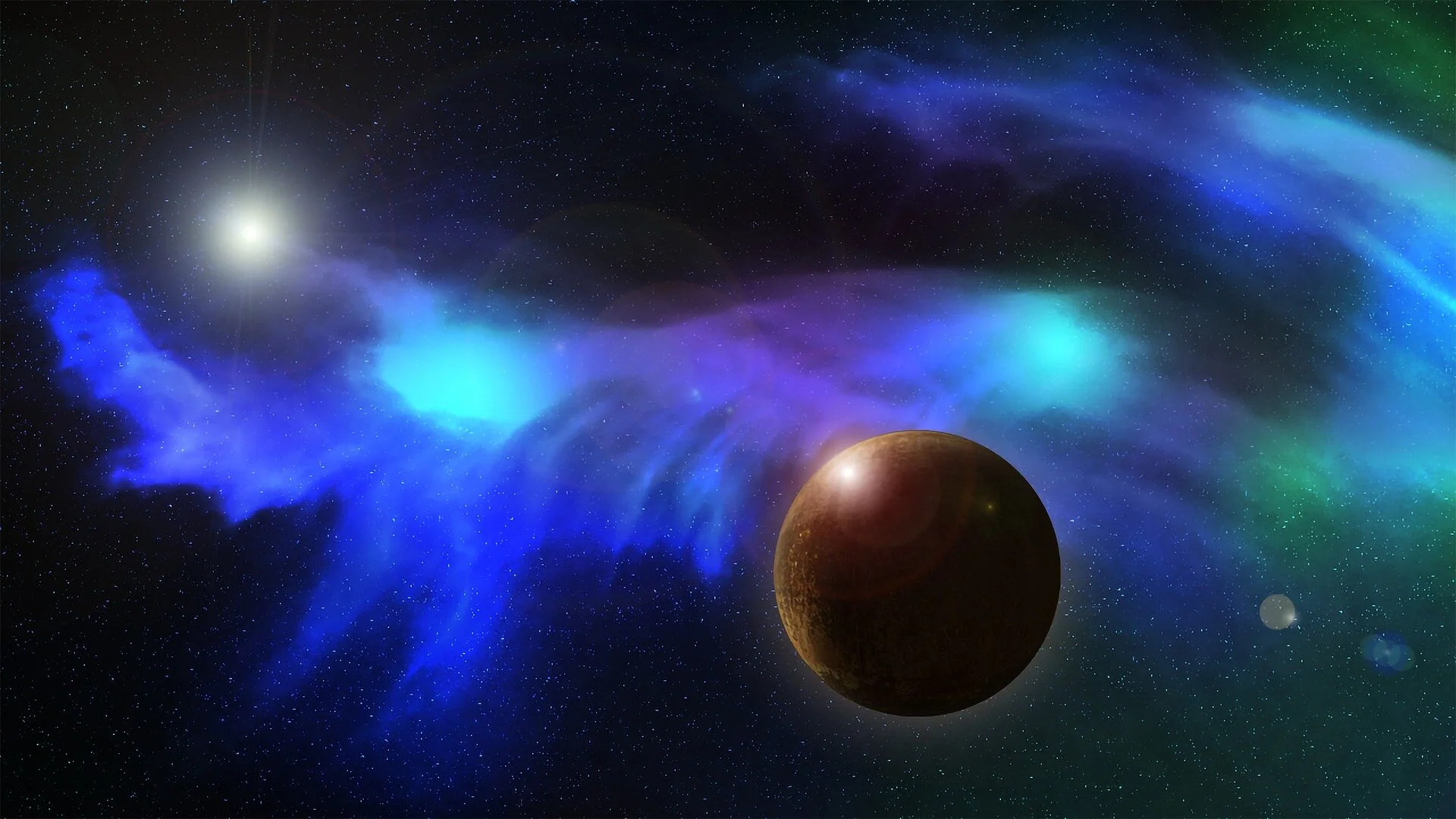As We Venture Out into Space, Will We Carry Our (Human) Faults with Us?
As a lifelong Star Trek fan and space exploration enthusiast, I am the first person to get excited about progress in space exploration and its long-term possibilities for improving the human condition. Most Star Trek fans are committed to some form of technological utopianism in which technological progress and space exploration go hand-in-hand with humankind bettering itself, eliminating the social, economic, and political problems that have plagued humanity from the beginning.
While the optimistic vision of the future of humanity embraced by Star Trek fans and utopian futurists everywhere sounds wonderful in principle—a future with no greed, scarcity, hunger, racism, poverty, prejudice, or intolerance—we should rightly ask about its plausibility. Political philosophers throughout the history of philosophy have speculated about the role human nature plays in government and in the ideal society: Plato’s Republic, Aristotle’s Politics, Thomas More’s Utopia, Hobbes’s Leviathan, and so on.
Star Trek, as a whole, falls firmly within this tradition of drawing a connection between the ideal society and human nature. What makes the Star Trek vision of the ideal society unique, however, is its optimism about human nature. Many philosophers of human nature, despite their differences, see human nature as relatively fixed and unchangeable. This means that human nature is a kind of practical constraint limiting our ability to implement anything approaching an ideal society. Star Trek, in contrast, generally views human nature as more malleable and flexible, with much room but also with immense potential for improvement.
According to the Star Trek vision of the future, if you want to improve society, you first begin by improving human nature—teaching them to be less greedy and less provincial, more educated and more globally cooperative. It’s an interesting question what exactly might bring about this change in human nature. Is it education? Globalization? Technological progress? Social and legal progress? Economic progress? Space travel? Scientific progress? All the above?
Skeptics about utopias in general, of the Star Trek variety or otherwise, generally view human nature as less malleable or less improvable, with our human flaws, weaknesses, and faults as being so deeply ingrained within us that we will never be able to rise above them, no matter how much social, economic, political, or scientific progress is made, in the near or far future. In fact, from the standpoint of the skeptic about the potential for improvement of human nature, the technological utopianism of Star Trek looks more like an escapist flight of fancy than a real possible future for humankind.
Although I wouldn’t necessarily describe the ancient Roman stoic philosopher Seneca as a skeptic about human virtue, as he did think we have the ability to master our faults, to some degree, through stoic training, he did warn against the danger of travel in general as a cure for human ills:
. . . your faults will follow you whithersoever you travel. (Seneca, Letter 28)
Letters from a Stoic by Seneca
As it relates to space exploration and space travel, we can follow Seneca in asking whether space exploration and space travel really have the ability to transform the human condition in the way that proponents of the Star Trek vision of the future seem to believe they can. The optimistic futurist interpretation of space exploration and space travel is that these projects have the potential to unite humanity in a common quest, allowing us to overcome the social, economic, and political problems by setting our sights beyond our own earthly horizon. One could just as plausibly follow Seneca, however, in believing that our human troubles will follow us wherever we go, whether around the globe or across the galaxy and beyond.
Mere hours before I sat down to write this I watched the successful launch of the SpaceX Dragon Crew Demo-2 mission with my family. This launch was notable for its being the first successful launch of American astronauts on an American rocket on American soil in nine years, since the final Space Shuttle mission in 2011. While my family and I shared in the same excitement, optimism, and sense of accomplishment shared by Star Trek fans and space exploration enthusiasts everywhere, both here in America and internationally, and while the progress narratives buzzing about the professional news coverage, NASA and SpaceX media coverage, and social media coverage of the launch were palpable, the launch being branded as ushering a new era of human spaceflight and a step in the march of progress and along our roadmap to the stars, we are right to question the utopian assumptions behind these progress narratives.
I am the first to express optimism about human potential and its connection with technological progress. I am, after all, a product of 1990s Internet culture of techno-utopianism. In the 90s we held that the internet would usher in a new era of human communication and enlightenment with the the free and global exchange of information. And while this utopian vision has come to fruition in some sense (the fact that I am writing this is a case in point!), the previous 30 years arguably haven’t seen nearly as much progress in terms of solving political, economic, or social problems with the increased use of technology. Indeed, the internet may have even made some of these social and political problems worse. As Seneca might have predicted, we have traveled deeper and deeper into cyberspace (as we used to call it), but we have carried our human faults with us.
Will it be any different for space travel and space exploration? Even if we succeed in becoming a multi-planetary species, either elsewhere in our own solar system or out there among the stars, will humanity bring its pettiness, its greediness, its brutality, and its baser qualities along with us to wherever in space we humans may travel? If Seneca is right, a dystopian vision of our spacefaring future is just as plausible as a utopian Star Trek-style vision. One of my favorite science fiction book series is the Rendezvous With Rama series by Arthur C. Clarke (originally) and Gentry Lee:
Rendezvous with Rama by Arthur C. Clarke
Rama II by Arthur C. Clarke and Gentry Lee
The Garden of Rama by Arthur C. Clarke and Gentry Lee
Rama Revealed by Arthur C. Clarke and Gentry Lee
In the Rendezvous with Rama series, humankind inadvertently becomes a spacefaring species when a large number of humans become passengers on one of several cylindrical alien spacecraft dubbed “Rama.” Although humans are out there among the stars with their basic needs like food and shelter attended to, by the end of the series society aboard the Rama spacecraft ends up being just as petty, dangerous, provincial, and brutal as any human society on Earth, so much so that one can’t help but think that Arthur C. Clarke and Gentry Lee must have had something like the words of Seneca above in mind when thinking through what a future human spacefaring society would be like.
I would like nothing more than to see Seneca proven wrong, to see the various flaws and faults of humanity replaced with a common mission, with genuine progress—social progress, economic progress, political progress, and, of course, scientific progress—and with genuine improvement in human nature in ways that philosophers of human nature in the history of political philosophy have been unable to take seriously. But although we arguably live in a more enlightened society than that of Seneca (or Plato, or Aristotle, or Thomas More, or Hobbes), our basic human natures from then to now have largely remained unchanged. This is the reason that we find Ancient Roman society so very familiar and relatable, even despite the temporal and cultural gap of 2,000 years. Humans today long for the same things and have all the same faults as the people of Ancient Rome, as even a cursory look at Ancient Roman society and writings makes plain.
As I think realistically about the future of humanity in a hundred, five hundred, a thousand, or even ten thousand more years, I find it easier to imagine a spacefaring society replete with all of our petty social problems than to imagine a utopian spacefaring society in which we have mastered our human nature and have left our petty human problems behind us, on Earth of the past. But, like a good Platonist and Star Trek fan, I look to my ideals for the future of humanity, and hope the skeptics—Seneca, Hobbes, and all the other pessimists about human nature—are wrong.
For Further Reading:
Letters from a Stoic by Seneca
Republic by Plato
Politics by Aristotle
Utopia by Thomas More
Leviathan by Thomas Hobbes
The Rendezvous with Rama Series:
Rendezvous with Rama by Arthur C. Clarke
Rama II by Arthur C. Clarke and Gentry Lee
The Garden of Rama by Arthur C. Clarke and Gentry Lee
Rama Revealed by Arthur C. Clarke and Gentry Lee

















